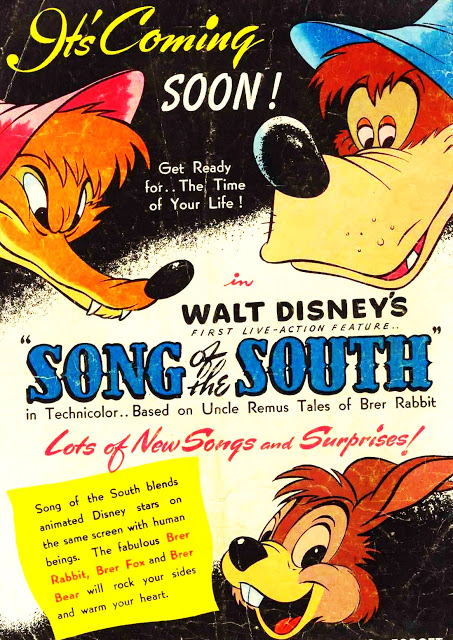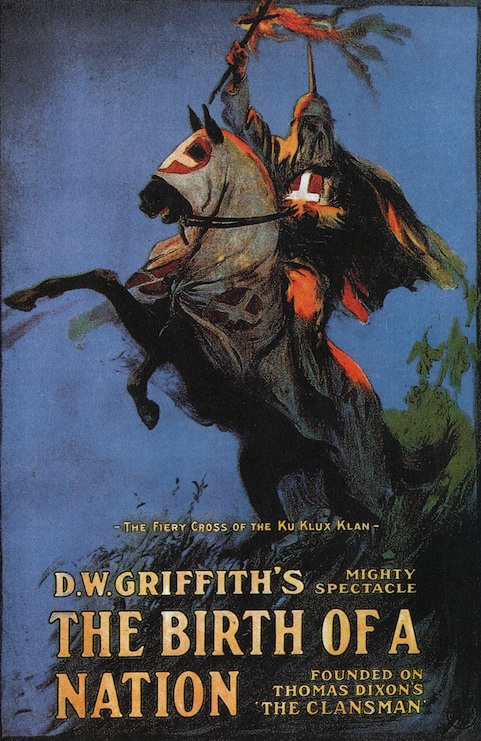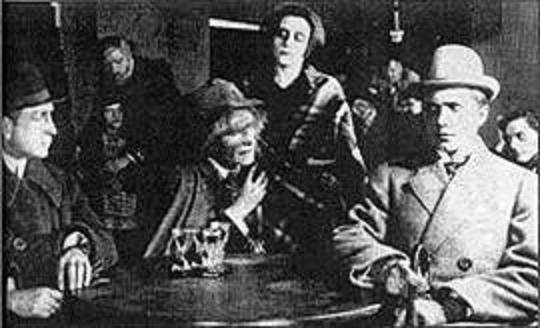In the Dr. Who episode Frontios, a character asks The Doctor what he thinks about a certain topic. The Doctor then tells him in a straightforward, unvarnished way what he thinks. The other character is a little put off, but The Doctor reminds him, “You did ask what I think.” I’ve been reminded of that interchange a lot this year.
Several weeks ago, my main Facebook page was bombarded with obscenities that I asked to be removed, and of course, they doubled down on more of them. This was in response to the fact that I dislike politics on my page and don’t allow that discussion. Since then, I have been inundated with questions. Why don’t I comment on current events? Why don’t I take a stand on moral issues? Why didn’t I delete that thread and block those people? So I’m afraid I must comment.
The short answer is that I didn’t delete the thread because I hate censorship more than I hate swearing. Since I’m an independent, my opinions will enrage a lot of you and help nothing. That saves most of you from reading a 2500-word rant.
I don’t discuss politics because I don’t think you want to read this stuff on my page. I come to my pages as a respite from the gawdawful complaining about every topic under the sun on Twitter and Facebook. I’d rather read about something I can affect rather than the political landscape. I’m an engineer and film preservationist. Asking me about politics is like asking your meter reader about dentistry. It may be interesting, but who really cares?
I don’t want to be entrapped in the “gotcha” culture of today, which is that we have to wear our allegiances on our sleeves, and any disagreement is tantamount to being evil. Things are too polarized and no meaningful discussion takes place. Life isn’t that way, but our culture has gotten to be. If you want to put them on your page, then fine. I may even interact with you. However, you’ll discover something important…
I’m independent. I often don’t agree with either the left or the right. I have a tendency to read as much as I can and make up my own mind. I try not to dig in my heels and be unmovable on most issues, unless you want to argue with me that The Untouchables is a really great film.
I also don’t advocate a lot because I’m not sure it helps. I learned this in the 5th grade when Channel 4 took my beloved Sammy Terry off the air. I organized a petition and got about 200 people to sign before I realized that I was just a puny mosquito pinging unheard at a double-pane window of NO. I realize that many of you disagree, and that’s fine by me.
Since I have friends, and people who pay me, on both sides of the political spectrum, I think it’s stupid to poke the tiger. Especially in these days of hyper-sensitivity. That does not mean I don’t have beliefs, nor that I won’t stand up for them.
I tend to automatically suspect people who have to parrot their ideals endlessly. If your beliefs are strong, you act in ways that support them. Teach, don’t preach (thanks, Felipe.) I used to work at a place that was “Christian” and the management operated in ways that would have befuddled Christ. And I see that today, too.
I think Jesus would be confused over the “Black Lives Matter” controversy. If I say “Black Lives Matter,” it’s now some sort of code for “I’m a member of ANTIFA and I secretly want the end of the United States.” WHAT? Or if I say, “All Lives Matter,” it’s code for “I’m actually a racist and I hate all African Americans.” There’s no winning here, only arguing. Of course black lives matter and all lives matter, and this bickering over semantics is pointless.
“Black Lives Matter” is not a code, but rather a complaint about some policemen who are out of control. To paraphrase Chris Rock, there are some jobs where we have to have 100% quality people, and being a policeman is one of those jobs. We can’t afford bad apples. No one wants to hear that we got the bad pilot on the day your plane hits a herd of geese. We all want our pilot to be Chesley Sullenberger. We all want our policemen to be Joe Friday. The world would be a better place if they were.
I don’t need to tell Facebook that I dislike jerk policemen. There’s a nasty cop in New Jersey who will testify to that. He wrote me a sucker-punch traffic ticket in 2015 and I think his ears are still ringing. It didn’t do any good. I still had to pay the ticket. I hope that, in the long-term, idiots like that are hounded into unemployment.
I’m not going to fix these problems. If I were a mayor or Congressman, that would be different.
But some of you think that by not posting my beliefs incessantly, I am mean and hypocritical, so it’s open season to put obscenities on my page in tag-team style. Well, sure, it may offend some of my clients, but you think it will only offend my clients who are on the “wrong side of history,” so fine, and you’re only proving how right you are to do this.
Look, I learned all the bad words, just the same as you did, but I’ve learned a few other things. Swear words really offend some people, even good people, even the people you think are on the “right side of history.” All you’re doing is making yourself look bad and trying to make me look bad in doing it. I hope it makes you feel better and more powerful, but you convinced no one of your arguments, you saved no black lives, and you changed the minds of no criminal policemen.
You’re also showing an ignorance about how culture is different in various places. About 20 years ago I was in a restaurant in Syracuse NY, and a couple there were yelling at the top of their lungs at each other, swearing, wondering if sausage came with the standard breakfast. This is normal for New York. New Yorkers will tell you that these are people being their true, genuine selves. If this had happened in Minnesota, the people would have been asked to leave. They would have ben considered rude and inconsiderate of others.
If I wanted to have discussions with only New York people, I would need an f-bomb on every page. But a lot of people take it at face value. They’re not all just “clueless red-state old biddies,” as you seem to think. Some of them are even on your “right side of history.”
I have posted jokes, articles about science, and film, as befits my background and interests. Given the fact that I do this, it should be pretty obvious that I don’t subscribe to anti-science conspiracies that “smart people” are planning a pandemic just to make your president look bad. That’s generally a sign that your guy already looks bad and it’s being exploited by the other side.
Being pro-science doesn’t automatically make me a pinko lefty, as again, many of you seem to think. The left has its ideology that looks bad too. In this case, it’s “cancel culture.” When someone is cancelled, they are shunned permanently and no longer allowed to earn a living. If dead, they are expunged from history, their works ignored. They are unworthy of polite society. This is done by social agreement, not any justice organization.
There is a theory that right-wingers are digging up any unsavory thing on anyone they can find. This is being done to enrage left-wingers and encourage them to cancel people who might not otherwise deserve it. In this way, left-wingers look bad.
I would politely suggest that maybe the real problem is that the left-wingers are going over the edge on cancel culture just as the right-wingers are going over the edge on conspiracy theories. Perhaps a little introspection is in order here!
One of my friends has said that he adores cancel culture. He loves the idea that all these people who have been wronged have a way to fight back.
When it applied to Harvey Weinstein, Bill Cosby, and Matt Lauer, I thought OK. These people abused others and deserved what they got. But then it applied to Al Franken and I started to wonder. Then Randy Rainbow. Now it applies to dead people like Thomas Jefferson, John Wayne, and Lillian Gish. Even worse, it applies to movies and genres of movies. So any film that has racism in it, or depicts sexism, or a raft of other things, is bad. Never mind if it’s an accurate depiction of the times in which they were made.
They should be cancelled. Never shown. Permanently.
I hate this. Let’s call it censorship, because that’s what it is. I despise all forms of censorship.
I have spent my entire life crusading against censorship. To me, the cruelest form of it is the subtlest: “We’re not going to make this available because it costs too much to release and we’ll never make our money back on it.”
I have deleted a couple hundred words here discussing just how much I have always fought against censorship. We’ll read it into the record.
Then my friend who adores cancelling talks abut how Disney (and by extension every other studio) shouldn’t ever release films like Song of the South because they are under no obligation and can do what they want. That only feeds into their pre-existing bias to lock away all films made before 2000.
He says cancel culture is a voice for the unheard. That’s true, but so is terrorism. Cancel culture is being abused and is becoming what I term cultural terrorism. Anyone or anything we want to cancel, justified or not, can be erased. See the Twilight Zone story “To See the Invisible Man,” or read the story by Robert Silverberg.
Song of the South is not worthy of being cancelled. It has much artistic merit. It was shot by one of the greatest directors of photography who ever lived, Gregg Toland. It’s got groundbreaking special effects. It’s some of the earliest well-done combination of live actors and animation in color. Is it racist? Yes. Is it offensive? Yes, in parts. I can see why Disney won’t put it out. They don’t want to be cancelled.
Make it available and put disclaimers at the front and end. If you stream it, make it TV-MA, so kids won’t stumble over it. Keep Whoopi Goldberg and Leonard Maltin employed doing introductions to every possibly offensive film. BUT MAKE THEM AVAILABLE. If you don’t then surrender the copyright to an archive and let others do it.
Does this mean I’m insensitive to African Americans? NO. But we don’t get to rewrite and whitewash history. History can be ugly and undulating. Ideas and interpretations change, both for good and ill. Until we can come to terms with that, we can’t really move forward, and heaven knows we’re not moving forward right now.
Yes, I realize that it’s painful and as a society we are in distress. I’ve got a heads-up for you: we’re not going to be healed by cancelling people and erasing the past. Nelson Mandela had it right. Read about his peace and reconciliation ideas. Open up everything. Admit to all, apologize for injustices and move forward. (Oh, and stop committing injustices… that helps most of all.)
So why am I so skittish about politics but I’ll take on censorship and cancel culture? I can’t do much about politics, but I AM in a position to make films available and undo censorship, and I will continue to do that. As Carrie Newcomer says, I can’t change the world, but I can change three feet in front of me. And I am.
I will probably be always remembered (if at all) for saving a bad serial that everyone told me I was crazy to work on. They’re probably right. But it’s getting saved.
Remember, I’m racist, sexist, and politically incorrect, at least according to many of you.
I’m one of the nervous old biddies who’s afraid to confront the people who are on the wrong side of history.
You should probably put me in my place by posting profanities on my page.
As an old white guy I’m societally irrelevant.
But I’m going to remind you of one thing:
You did ask.



